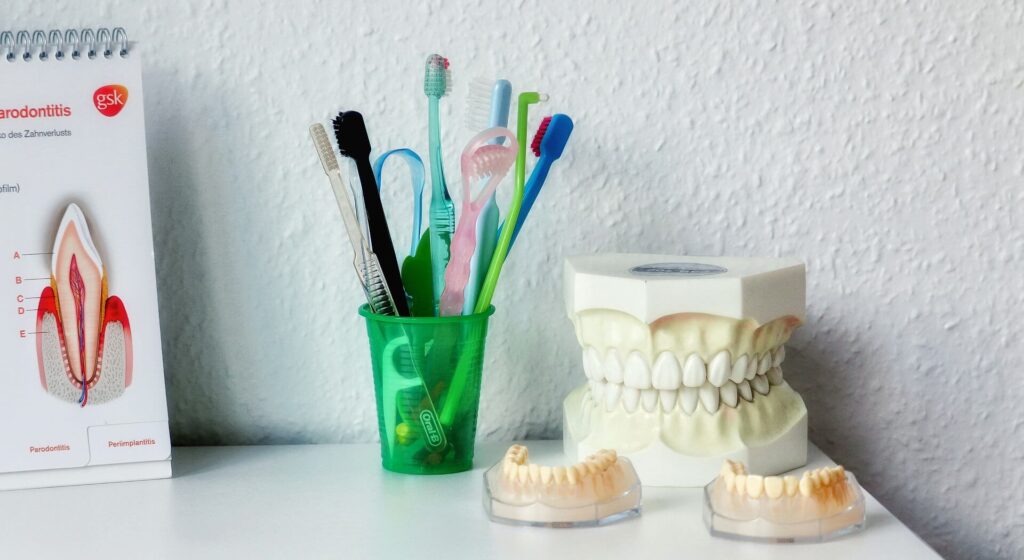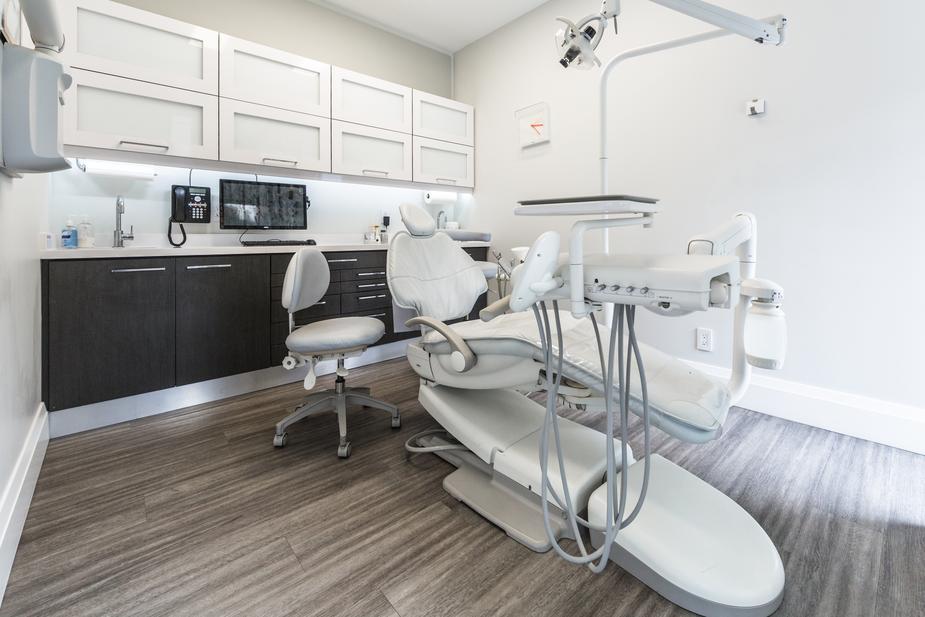What Causes Receding Gums?
Receding gums is a condition where the gums pull back from the enamel of the tooth. Your tooth travels further into your gums than it would appear. One of the main reasons for this is bad oral care. Your gums are very sensitive and can show signs of gingivitis fairly early on. If your gums are receding the cause likely originated some time ago since gums recession is a slow process. If your gums start having negative symptoms, you need to take more care of them immediately.Your gums act as part of the foundation for your teeth, if your gums are unhealthy, your teeth can develop a number of issues. Unless you change your brushing habits or your lifestyle, the gums typically, won’t get healthier.

Gum Recession Symptoms
What do receding gums look like? Your gum’s tasks include protecting and keeping your teeth fixed in place. If your gum recedes a significant amount it can show in the following ways:
- Tooth displacement – Your teeth can move over time.
- Tooth sensitivity – Your teeth may be sensitive to temperature.
- Toot loss – If you have severe gum recession, teeth can fall out.
- Promote decay – If you have more surface area exposed, you’re more likely to get a cavity.
- Bad breath – Infections causing gum recession can also cause bad breath or a bad taste in your mouth.
- Puffy gums – Infections cause puffiness, which is an early warning symptom.
- Pain/sore gums – Your gums should cause discomfort in some way, even before the recession.
Gum Recession Tips
How To Prevent Receding Gums
Gum recession prevention is far easier than treatment, since gums are sensitive, they will generally, start showing negative signs and symptoms early. One of the main reasons for gum recession is improper oral care. If you notice your gums show any of these symptoms:
- Puffiness
- Pain/discomfort
- Redness
- Bleeding
Oral Health Care Tips
For an above-average oral care routine does the following two times a day, once when you wake up, and immediately before you to bed:
- Brush each quarter of your mouth for 30 sec.
- Floss your mouth for 1-2 minutes.
- Swish mouthwash for 30 seconds.
- Use a Water pick (optional).
However, if you already have receding gums, simply increasing your oral care, may not be good enough to reverse the problem.
Do You Have Gingivitis Or Periodontitis?
Receding gums is an indication that you have gum disease (gingivitis), or if it is severe gum disease, it can be considered periodontitis.
There are multiple stages of periodontitis:
Gingivitis
Gingivitis occurs when the infection has not yet had time to reach the bone. There are a few signs and symptoms that show up, but most are relatively painless. Some early symptoms are bleeding, puffiness, and redness. If you notice these symptoms early, increasing your oral care frequency and quality is often enough to treat them.
Slight Periodontal Disease
If you have periodontal disease it is not reversible, but it can be manageable. At this stage, the infection has begun to attack the jaw bone. If the infection continues to attack the jaw bone your teeth positioning can be affected, and you can even lose your teeth.
Moderate Periodontal Disease
- Root planing
- Teeth scaling
Advanced Periodontal Disease

How To Treat Receding Gums
If you have receding gums, they will be treated in one of the following ways depending on the severity:
Medication
- Topical antibiotic gel
- Antiseptic chips
- Antimicrobial mouthwash
- Enzyme suppressants
Deep Cleaning -Tooth Scaling And Root Planing
Surgery
Grafting
Frequently Asked Questions
Both can be treated, but periodontitis is not curable, it is only manageable. Gingivitis can be reversible at home if it is diagnosed early enough.
Yes, you will need to improve your oral care routine until the conditions go away. You can see a change in the symptoms as early as 2-4 weeks,
